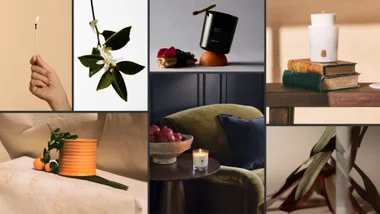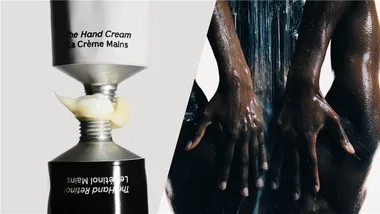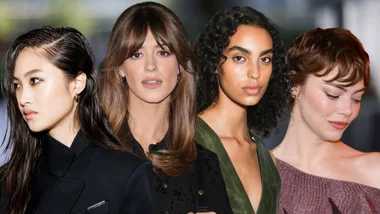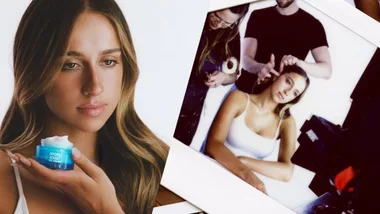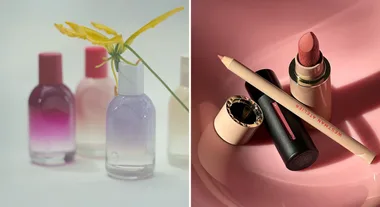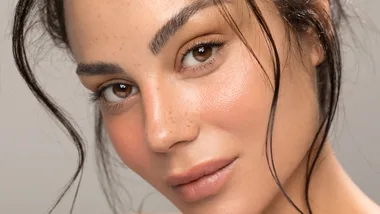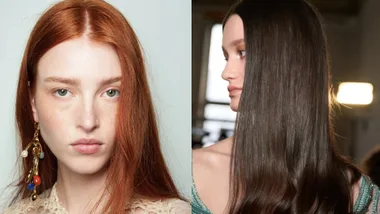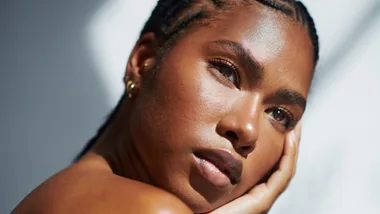Karina White was 21 when she first decided to change her face. “I began with getting my lips filled,” says the registered nurse from Sydney.
“I did that a few more times and a bit of Botox here and there. Then I got my under-eyes done. I had hereditary hollows under my eyes so I got them filled.”
Her doctor suggested that her fresh new eyes would be complemented by a cheek augmentation – so White got that too.
And in May last year her breasts went under the knife – increasing in size from a 10A to a 10E. In total, the 24-year-old estimates she’s spent $20,000 on both surgical and non-invasive cosmetic procedures.
“It’s not that it’s addictive,” says White, who believes that her procedures are largely undetectable by others. “But you start to say to yourself, ‘You know you’re not natural anymore so you may as well fix the next thing’.”
White is one of a growing number of women and girls in their teens and early 20s who see surgical and injectable cosmetic enhancements as a normal part of their grooming routine.
Celebrities like Kylie Jenner, who confessed to a lip augmentation at the age of 17, and Glee actress Naya Rivera, who admitted to getting breast implants when she was 18, are one of the strongest driving forces behind young women’s increasing fascination with changing their bodies.
RELATED: Has Kylie Jenner Given Up Lip Fillers?
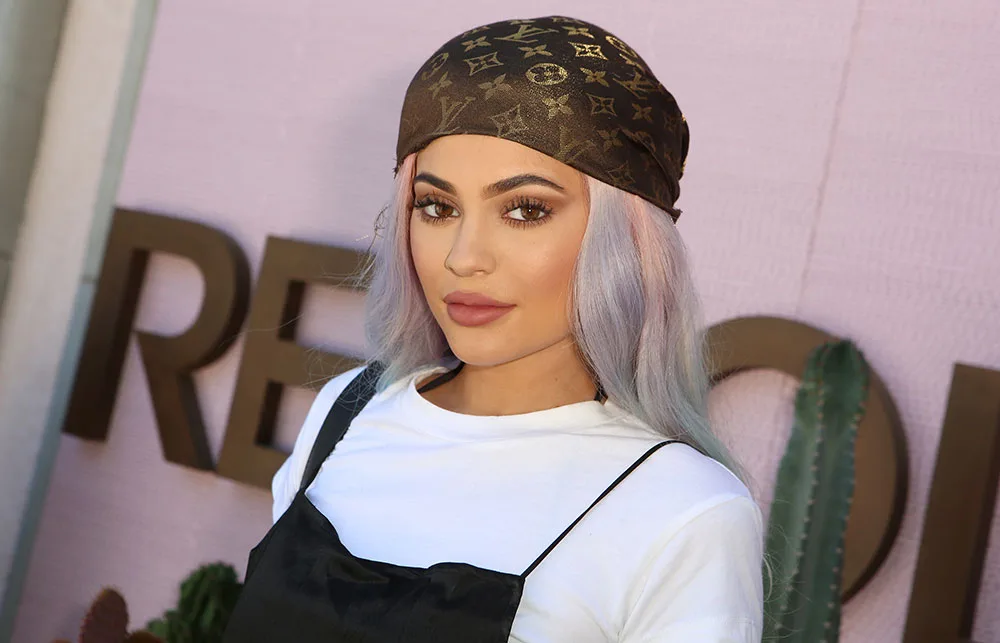

While the industry doesn’t compile data about the ages of people undergoing these procedures, we do know that Australians spent over $1 billion on nonsurgical cosmetic procedures in 2015 – up from $773 million in 2012. Anecdotally doctors report that the women in their waiting rooms are younger than ever. This is despite new mandates from the Medical Board of Australia that say under-18s must wait a three-month “cooling off ” period before undertaking any procedure that cuts into the skin (non-invasive procedures like Botox or Restylane don’t count) and that doctors and other clinicians have an obligation to be sure their patients are mentally and emotionally prepared for what they’re about to do.
“In the last few years I’ve definitely seen more early-20s females,” says Dr Naomi McCullum, who performed Karina White’s facial procedures and says she personally wouldn’t operate on under-18s. “It’s very noticeable. Caucasians want lips and cheeks. Asians want masseters [jawlines] and chins. For many of them,” she says, “it’s like a hobby.”
Appearance is much more than a hobby for Sydney YouTuber Domenica Calarco. The 24-year-old is making a career out of sharing make-up tutorials with the 7000 subscribers on her channel and 10,000 Instagram followers. When she was approached by a cosmetic clinic last year to try lip injections, she didn’t hesitate.
“At the time I was kind of like, I’m happy with my lips, with their shape,” she says. “But I thought I’d just want a bit of extra volume.” Calarco, who says she trusted the clinic enough not to worry about risks, loved the result but her boyfriend at the time threatened to break up with her if she got the procedure done again. Six months later she’d ditched the boyfriend and was back under the needle.
“I love the result and I don’t have to worry about what he thinks now!” she says, laughing.
Another beauty vlogger, Emily Farmer, who lives two hours east of Melbourne, went even further. She vividly remembers being called “Surfboard” when she was only 12 or 13 years old because of her flat chest, and recalls her mother and sister teasing her about her small breasts.
“One day I just made up my mind and decided if I never grew my own boobs, I’d buy my own boobs,” she says of her decision to have a breast augmentation at the age of 18. “Once I hit about 16 I knew my breasts just weren’t going to naturally develop.” Farmer, who is now 21 and studying hairdressing, says she doesn’t regret her new size C breasts for a minute. The outcome, she says, has been great for her “confidence”. She says people should change what they don’t like about themselves if they have the means. “Life’s too short not to be happy within your own skin,” she says.
The social influencer impact on the rise of teen surgery has been dramatic. Dutch researcher Dian A. de Vries correlated a number of studies and published her findings in the Journal of Youth and Adolescence in 2016, and concluded that social media use negatively affected girls’ body image, in a way that isn’t mitigated by positive affirmations from peers or other sources.
Surgeons and their marketing teams know this and it’s not uncommon to see posts or videos from young YouTube or Instagram stars talking through their gifted procedures, along with detailed “thank yous” to the clinics responsible. Apps like Plastic Surgery Simulator or Mod Your Bod that allow you to alter your features digitally, a sort of plastic surgery “try before you buy”, also fuel the desire.
Then there are the countless Instagram filters helping young women project a flawless online image.
It’s no wonder that more and more of them want their real-life features to match those they broadcast to the world via their smartphones.
Ask any of these teens and 20-somethings about the motivations behind their procedures and their response is almost always governed by the language of empowerment and autonomy that they’ve grown up hearing from their Generation X parents.
“I was never trying to be anyone else,” says Calarco of her lip enhancements. “I want to be an individual.”
White is even more vehement. “I never take other people’s views into consideration when I do something like that,” she says. “Boyfriends will try to convince you you don’t need work. Friends will say you should love yourself the way you are. But they have it entirely wrong,” she says.
“It’s not that I don’t love myself. It’s the exact opposite. I love myself. And that’s why I’m upgrading myself.”
But this sort of justification seems hollow to clinical psychologist Dr Anna Cohen, who works with women and girls under the age of 25. She too is seeing a startling increase in the amount of young people – some no older than Year 8 or 9 or even younger – expressing dissatisfaction with the way they look.
“I just think it’s so sad,” she says. “We are becoming so obsessed with our appearance that ‘I love myself so I want to change myself ’ is a thing that these kids are saying. I spend so much of my time supporting young people to improve their body image and find a way to be OK with themselves. To recognise that their body is their own, no matter what shape or size it comes in. To identify the aspects of their appearance they can realistically change and what they can’t. Not through augmentation or surgery but through a bit of grit and hard work. Because if you change too much, you see these kids who don’t even know who they are underneath it anymore.”
One of the concerns, Dr Cohen says, is that there are few significant longitudinal studies about the long-term effects of beginning major cosmetic work at a young age. Anecdotally, however, she has seen what can happen when a girl who is still learning who she is and what her place is in the world makes changes that can’t be reversed.
“I have a young woman I work with who’s 28 but who had her breasts massively increased at the age of 18,” she says.
“She was probably a double A and is now a double D. She regrets it. She’s really, really disappointed.” Her oversized breasts, Dr Cohen says, give her migraines. She’s had a baby and has been unable to breastfeed. “If she had been able to use an adult’s intellect – where we know that the brain doesn’t complete its development until the age of 25 – she might have done something very different,” Dr Cohen considers.
So what is a normal level of grooming for this age group and when does “normal” become radical? Even Dr Cohen accepts that a surgical procedure like a breast augmentation, which is permanent, is in a different league to lip injections or Botox, which wear off over a matter of months. Perhaps non-surgical interventions aren’t far away from gaining the same sort of acceptance as a drastic haircut or acrylic nails.
“I think a lot of these kids think, well, I dyed my hair blue yesterday, what’s the difference?”
“And I agree that as a clinician, I struggle with the idea of where we draw the line.” Calarco echoes her thoughts. “I think getting a tattoo or a piercing is much scarier than having your lips done,” she says.
Which is why, Dr Cohen points out, it’s important that parents and other adults shaping these kids’ worlds – including the surgeons and clinics themselves – need to be mindful of instilling value systems into them that focus on something other than looks.
“Getting kids, particularly girls, involved in sports, arts and maths, plus any other mentally and psychologically challenging activities, raises a girl’s self-esteem,” she explains. “Fostering a young woman’s natural talent and [encouraging] her to pursue new things so that she can feel a sense of accomplishment is what will increase her self-confidence.”
But for now these young women are happy enhancing their outer appearance with whatever means they have at their disposal, an act that they say is in no way a negative reflection of their inner life. In fact Karina White’s mother, Rita, insists that she loves her daughter’s new look and hopes to get some of her own procedures done in time.
“I’ve always had a positive view on plastic surgery because it can change people’s lives for the better. Karina getting her procedures didn’t bother me at all. I think they improved her appearance and even more, improved her confidence.” White agrees. “People have this problem with people who take pride in their appearance,” she says. “It baffles me why people feel the need to comment on other people’s choices.
Changing your appearance has a bad rap but I think that comes from people who don’t understand it. I’m the same person I was before I did all this stuff. Your personality is not based on your lips.”

